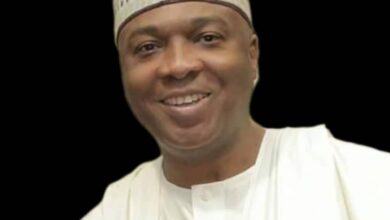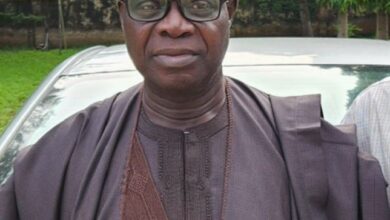
The National Assembly is currently amending the 1999 constitution. This would be the fifth alteration to the main Nigerian law.
Lawmakers in both the Senate and the House of Representatives committees on constitution review had in May and June organised public hearings across the country’s six geopolitical zones, as part of the amendment process.
Many agencies, institutions, groups and individuals submitted memoranda and appeared before the panel to make or defend their submissions.
Major recommendations were raised at the hearings; ranging from state police, restructuring and devolution of powers, robust electoral reforms, gender inclusiveness and financial autonomy for the judiciary and local governments.
While some have condemned the entire process, describing it as a waste of time and resources, other Nigerians said it is timely and long overdue.
Here are some of the key proposals made by Nigerians at the public hearings:
‘A new’ constitution
This is perhaps one of the most mentioned recommendations at the hearings by different individuals and groups.
Many who demanded a new constitution explained that the current one is outdated.
One of such people is the Delta State Governor, Ifeanyi Okowa, who told the Senate panel that new laws for the country had become necessary in view of inherent flaws in the 1999 Constitution.
He called for an insertion of a clause to pave the way for a rewritten constitution, which would continue to be in operation until a fresh one is ready.
A former presidential candidate, Oby Ezekwesili, also made a similar call when she said the current constitution, which has been altered four times, is outdated.
She asked the National assembly to accept referendums for a new constitution to be made.
Devolution of powers
Participants across the country also called for devolution of powers at the public hearings as they demanded that more powers be given to state and local governments.
The Kaduna State Governor, Nasir El-Rufai, is one of the many who made this call.
This, he said, is necessary because the existing structure overburdens the federal government with too many responsibilities which it cannot handle efficiently. And that each state of the federation should decide the model of democratic local government that best suits it.
In the same vein, he called for state policing as well as the autonomy of the judiciary in states.
Creation of new states
The creation of new states is another demand that came up at different hearings. Many also sought the creation of new local governments.
Different groups who asked for more states gave several reasons for their demands like their population, landmass, economic viability, natural resources, and industrial development potentials among others.
A group from Wukarri in Taraba State sought the creation of Kwararrafa State out of present-day Taraba with Wukari as its capital.
Manzuma Mammah from Kwara State proposed creation of Edu state from Niger and Kwara states.
Some stakeholders from Adamawa State also called for the creation of a new Gongola State.
A group, Chamba Cultural Development Association (CCDA), which also demanded a new state, asked for three additional local government areas to be created for them.
In the same vein, Yakubu Haruna sought the creation of additional 15 local government areas in Kogi State.
These are a few of the many calls for creation of states and local governments.
Women inclusiveness
Nigerian women and women groups were also present to make their submissions, most of which was about women inclusion in government and public offices as well as gender balance in the crafting and language of the constitution.
Some women asked for special seats in the Senate, House of Representatives and state Houses of Assembly for women. They asked that each state and Abuja reserve one senatorial seat for women as well as the House of Representatives and House of Assembly.
They also called for 37 senatorial seats, 74 House of Representatives seats and 108 state House of Assembly seats to be reserved for women.
Others proposed that words like “she/her” be added to words like “he/him/his” in the constitution.
Legislative, judiciary, LG autonomy
Many groups, including the Nigerian Labour Congress (NLC), made a case for autonomy for the legislature, judiciary and local governments. Some state governors did so too.
The NLC had told the Senate panel in Abuja to not only give autonomy to the arms of government but to the other levels of government as well especially the local government so that they can be more efficient.
In a similar demand, the Chief Justice of Nigeria (CJN), Tanko Muhammad, asked the National Assembly to confer the control of the Code of Conduct Tribunal (CCT) on the National Judicial Council (NJC). If this is done, he said, the judiciary will exercise control over the Tribunal.
Other major recommendations are; Calls for the prioritisation of the enforcement of human rights and gender equality in the constitution by religious leaders.
Leaving labour and minimum wage on the Exclusive List, where it is. And removal of immunity from political office holders to allow for prosecution of criminal cases, demanded by NLC.
Scholarships for Fulanis, by the Miyetti Allah Cattle Breeders Association of Nigeria (MACBAN), Kogi Chapter.
Renaming Nigeria as United African Republic.
Independent candidacy, age limit for political office contestants, separation of the office of the Attorney -General of the Federation from the office of the justice minister, Land Use Act, referendum, increase in derivation allocation, impeachment clause, among others.
Although the Deputy Senate President, Ovie Omo-Agege, promised that the report from the committees will be ready by July, the lawmakers have since embarked on summer break and the consideration of the panel’s report will be done later in the year.
The leadership of the National Assembly has, however, assured that the propositions will be considered and inputs made where needed.
They have also assured that committees will revisit failed proposals in previous amendment exercises.
The National Assembly has been altering the 1999 constitution since the fifth Assembly. And while some amendments were successful, many others failed but kept appearing in new proposals.
Culled from: premiumtimesng.com





